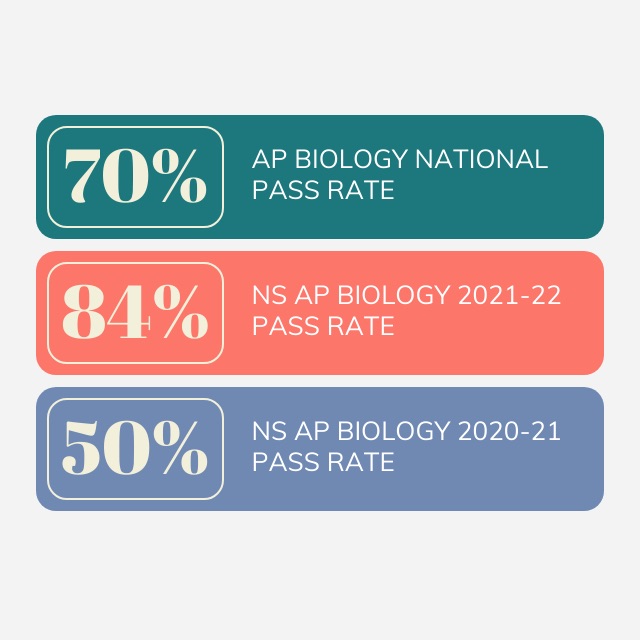BY ABBY BENCH
MANAGING EDITOR
Last school year, 14 students had the opportunity to take the AP biology test. Of those students, 11 passed, two failed, and one never completed the test. Overall, 84 percent of the class passed, which is higher than the national average. In the past few years, the national pass rate has stayed in the range of 60 to 70 percent.
“No, I didn’t plan on 84 percent,” said AP biology teacher Digger Henrie. “I was thinking around 60-65 percent. When we got the results back I was like ‘What the heck?’ I think most students were surprised they passed.”
The test is scored from one to five. A one or a two doesn’t pass, a three earns college credit for the class, and a four or a five gets a lab credit as well. Both the test and the class require preparation, dedication, and hard work.
“I think the class did well preparing me,” said senior Caylee Nesbit. “I think it is just a matter of learning all of the information, taking the unit test and keeping that information when moving on to the next unit.”
Other than actively going to class, AP biology students need to study on their own time. The class can only do so much, if the students don’t put in the extra work they won’t do as well on the test.
“I feel like I did well in the class. It was harder than a normal high school class, but it wasn’t as bad as I thought it would be,” said senior Tylee Henrie. “I probably could’ve studied for the AP test better. I still did great on the test though and scored a 4.”
Although it can be a struggle, putting in the extra effort is worth it. The major reason for taking AP biology is to receive the college credit. Students have a full year to learn instead of just a semester, and it’s much cheaper.
“I took the class so I could earn college credits as well as high school ones,” said Tylee Henrie. “What motivated me to do well was the price of the class and the time it took. If I didn’t pass the final test, I would’ve wasted lots of time and money.”
While the students are paying attention to the actual material being taught, Henrie has to focus on the best way to teach it. The teaching style played a big role in the score difference between the years.
“I’ve only taught it for two years and the first year we had almost 50 percent pass,” said Henrie. “Most first year teachers only have 18-25 percent pass rate so we had a really good first year.”
As he makes changes to the way he teaches the material, he hopes the scores will improve even more this year.
“I think we’ll be 100 percent this year, I hope,” said Henrie. “Naturally you figure out what things worked the previous year, what things didn’t, and what more you need to do.”
Although there are fewer students in many of the advanced classes, including AP biology, Henrie hopes more students will take the opportunity and put in the effort to do well in the class and on the test.




